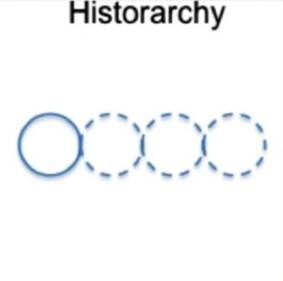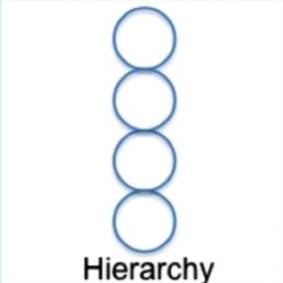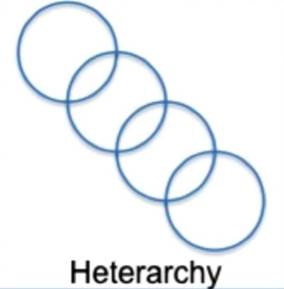“Every great and just struggle you care to mention, has been necessitated in order to address a wholesale abuse of power.”
For years I have considered the interrelationship between power and strength. We so often hear the term ‘an abuse of power’ but never have I heard the term ‘an abuse of strength’ before.
In recent history, one of the most visual and striking examples of these two forces of nature facing off against one another, was the instance of “Tank Man”. When a lone figure in Beijing, temporarily stopped the advance of a column of tanks on June 5, 1989, in what is widely considered one of the iconic images of the 20th century.
Tiananmen Square – Power Meets Strength
The anonymous man who stood in front of a column of tanks that morning after the Chinese military had suppressed the Tiananmen Square protests by force, achieved widespread international recognition. Some have identified the man as Wang Weilin, but the name has not been confirmed and little is known about him or of his fate after the confrontation.
So why did such a show of concentrated military power yield to a lone and defenceless student carrying nothing more than a shopping bag?
We can all understand power versus power confrontations. For instance think of the Cold War deadlock between the super powers of capitalism and communism, or WW2 when the free democratic ‘Allies’ united in defence against the totalitarian fascist ‘Axis’ powers.
Equally, strength versus strength show downs which capture our attention are also easily understood. These are the preserve of accomplished and driven individuals pitting their wits and courage and in some cases their very lives against each other in a bid for glory or immortality. Think of the great tennis, racetrack, political, or business rivalries. Or any other concentrated arena where the limits of human skill, resilience and endurance are on full show.
But it is the David and Goliath, strength versus power struggles such as the one witnessed in Tiannaman Square that day that continue to intrigue me the most.
So why does power appear to present more often in collectives and strength in individuals apart from the obvious inequality of resources that they each possess?
And even then, why does collective power so often yield to individual strength?
Fundamentally, what is it that majority power lacks, that minority strength has to it’s distinct advantage?
Perhaps, a vital insight has come from my own experience with customer surveys over the years. At Present Group while conducting Net Promoter Scale (NPS) customer satisfaction surveys it has become apparent that individual services score on average significantly higher than those rendered by collective teams.
It just goes to prove that great services provided by committed individuals are so much more apparent than collective services delivered by some committed individuals and some not so committed. Which leads to them being compromised in some way, sometimes to their total demise.
This leads me to conclude that greatness is far more likely to manifest as a result of a great individual’s heart or soul presenting as courage or truth and preferably both.
Therefore intrinsic courage and truth which distill together as strength are far more easily maintained in a committed individual than any more powerful collective, where any one weak individual within its ranks can dilute their entire resolve.
Without doubt, fear and lies can bring together powerful collectives but they will always lack strength when it is likely that many of their individual members will be rendered powerless in the face of a strong and committed individual, who has an unbending fortitude and in some cases is even prepared to die for their cause.
Quadrants of Influence on Society
This consideration has led me to devise the ‘Quadrants of Influence’ in the above diagram. As you can see the top right tile is both present and active representing the embodiment of a strong individual who leads based on merit. Presence is my definition for a combination of courage and truth which dispels fear and lies.
Present meritocratic individuals use their strength of advocacy to wield power by consensually harnessing the democratic collectives shown in the bottom right tile. Absent bureaucratic collectives and autocratic individuals will always feel their own power bases threatened by this and so they despise and challenge that strength with all their might.
The absent active force represented in the top left tile is defined by an autocratic individual who can be powerful and lead by force but their power is so often grounded in fear and lies. Active autocrats will use their force of will to wield this power over the passive bureaucratic collectives shown in the bottom left tile. That is of course until those usually passive bureaucracies have had quite enough and overthrow their pet tyrant, only to replace them with a fresh one.
A great example of this whole dynamic would be the showdown between two very meritocratic individuals; Churchill and Roosevelt, who both had the strength to advocate that their respective democratic collectives should rise to meet the threat of the Axis powers. Whereas the Axis powers were largely bureaucratic collectives ruled by poster boy autocratic tyrants, namely, Hitler and Mussolini.
This all leads us back to a greater understanding of the Tank Man phenomenon as it too involves all four quadrants of influence. Our anonymous hero was the perfect example of a strong individual meritocrat, facing down a powerful collective bureaucracy that had been ordered by forceful autocratic leaders, to quash a collective democratic uprising.
——————————————–
“Those who fail to learn the lessons of history are doomed to repeat them.” – George Santayana.
Enough of the history lesson. So what if we took the understanding of the ‘Quadrants of Influence’ and sought to understand a present day struggle?
The personal data sovereignty movement is a great case in point. It is a mounting necessity in a digital era where there are endless issues surrounding the ubiquitous nature of our data and how it is constantly being misappropriated.
This movement already has key collectives forming like Privacy by Design (PbD) and the Respect Network and they are championed by meritocratic individuals who have seeded compelling advocacy in their charters to win over the hearts and minds of the democratic collective.
– Privacy by Design – 7 Foundational Principles:
http://www.privacybydesign.ca/index.php/about-pbd/7-foundational-principles/
– Respect Network – Respect Trust Framework
http://openidentityexchange.org/trust-frameworks/respect-trust-framework
On first reading the PbD – 7 Foundational Principles, I was struck by the uncanny parallels with an older cause championed in conventional industry, that of ‘Safety by Design’.
Most telling of the similarities between the two causes are the first two of PbD’s – 7 Foundational Principles;
1. Proactive not Reactive; Preventative not Remedial:
The Privacy by Design (PbD) approach is characterized by proactive rather than reactive measures. It anticipates and prevents privacy-invasive events before they happen. PbD does not wait for privacy risks to materialize, nor does it offer remedies for resolving privacy infractions once they have occurred – it aims to prevent them from occurring. In short, Privacy by Design comes before-the-fact, not after.
2. Privacy as the Default Setting:
We can all be certain of one thing – the default rules! Privacy by Design seeks to deliver the maximum degree of privacy by ensuring that personal data are automatically protected in any given IT system or business practice. If an individual does nothing, their privacy still remains intact. No action is required on the part of the individual to protect their privacy – it is built into the system, by default.
Likewise, Safety by Design is a concept and movement that encourages construction or product designers to ‘design out’ health and safety risks during design development. The concept supports the view that along with quality, programme and cost; safety is determined during the design stage.
At Present Group we service the industry sectors of mining, oil & gas, utilities and infrastructure for some of the worlds largest public companies. We help them to safely and effectively commission and operate their major assets throughout their life cycle. Over the past few decades there has been a great struggle in these sectors to win over the hearts and minds of individuals to embrace the concept of zero harm. Basically the right of every individual who works in industry to return to their families and loved ones unharmed and in one piece no matter how hazardous their work environment happens to be.
Just as PbD advocates, one of the greatest challenges has been shifting the focus and culture from a reactive to a proactive approach. A reactive safety culture is easily identified as it will mainly attend to Lag Key Performance Indicators (KPI’s). Unfortunately this places the emphasis on attending to issues after the fact and invariably people continue to be injured or worse as a result.
Lead indicators on the other hand are the preserve of proactive cultures who aim to identify and attend to safety issues before someone has to suffer the consequences. At Present Group we often say of some clients, that they do not have to get it in their hearts and minds that this is the right approach, as long as they at least get it in their minds that it is good for their business if they do not harm people with impunity.
Privacy then has many parallels to safety. For in the earlier days of industry and still to some extent in emerging economies today, large corporates have continually trampled on individual safety rights in their pursuit of profit. It appears that the very same attitude is occurring with regard to an individual’s right to privacy.
Since the proactive approach of ‘Privacy by Design’ is relatively in it’s infancy compared to the movement for ‘Safety by Design’, most of the major tech companies and government surveillance agencies still only pander to reactive cases; usually only changing their behaviour once they have been caught red handed and publicly chastised.
– ‘In safety culture terms; poor reactive or lag measures, invariably means that we are forgotten until people get hurt?’
– ‘In privacy culture terms; poor reactive or lag measures, will no doubt mean that we continue to be remembered until personas get hurt?’
To drive this point home to reactionary safety laggards we often tell them: “If you think honouring personal safety is expensive try having an accident?”
Again, in privacy terms a similar phrase could be used to address privacy laggards; “If you think honouring personal privacy is expensive try having a breach?”
Recently the European Court of Justice has made a ruling that could have significant implications for search engine providers such as Google, Microsoft and Yahoo. It has also elevated the phrase “the right to be forgotten” into the public domain for no doubt endless heated debate. Although the arc of this debate will probably trend from the black and white quest for “the right to be forgotten” to a more realistic and achievable; “right not to be found easily.” Still it is certainly a healthy move in the right direction.
So why are our rights to personal data privacy not taken seriously, just as a few decades ago our basic right to a safe work environment was largely ignored too? One simple way to explain this, is with the aid of Maslows Hierarchy of needs;
As you can see our basic needs for safety and security (privacy) are somewhere down the bottom of the pyramid.
Much in the same way that the majority on our planet who were not fortunate enough to be born into the first world are constantly preoccupied with the daily struggle to secure their lives and families with food and shelter, today’s digital economy appears to be denying the vast majority of first world users and browsers the basic right to secure their privacy.
Quite simply, those further up the hierarchy who have met both their physical and privacy security needs, as they can well afford to, just do not see the importance for those still struggling to achieve it. Especially when it may also impact on their business or investment interests ability to profit by it and stay up there on the higher reaches of the pyramid seeking self esteem for themselves.
Call it the cost of progress if you like but it is imperative that a more evolved proactive approach as outlined by PbD helps us all to catch up.
This temptation for those who have taken care of their own basic security needs to continue to exploit those who are still struggling to do so has always been there. Especially when it means that they can profit further and satisfy the higher level aspects of the hierarchy of needs albeit at other less fortunate peoples expense. Today the new fortunes are to be made in the digital arena so it is little wonder that it is personal privacy rights that are being ignored, just as the early industrialists did with regular impunity in regard to personal safety rights.
The above meme is true to the extent that the desire for personal space may have always led to antisocial behaviour but with one vital missing element; The key difference is that unlike today’s online experience, no one knew in the public domain what you read, or what you thought about what you read in the newspapers, unless that is, you chose to break your own anonymity and wrote to the editor.
——————————————–
“Princes and governments are far more dangerous than other elements within society.” – Niccolo Machiavelli
Machiavelli’s stark warning remains true to this day. So who are today’s autocratic Princes and bureaucratic governments described in the left hand column of the ‘Quadrants of Influence?’
Well, when it comes to the digital hierarchy of needs, the current boys club of tech billionaires will do nicely in the role of self serving Princes. While the NSA and other government agencies are obvious candidates to be branded as intrusive government bureaucracies.
Without casting too big a shadow on these two influences, it all comes down to a simple matter of maturity. You see, archetypal Princes unlike archetypal Kings and Queens don’t tend to serve the people. Without a true Monarch’s sovereign burden of serious matters of state, that serve, to serve the greater good, Princes are free to be frivolous and selfish play boys if they so choose.
In a recent interview Bill Gates demonstrated that he himself has dramatically made the shift from tech Prince to King consciousness, replacing his own self interest with that of the greater good. Technology is “amazing,” Bill told the Financial Times, but it’s not going to save the world. The Microsoft co-founder said that though improvements in technology may have their benefits, they won’t meet the needs of the world’s most desperate.
“I certainly love the IT thing,” Gates said. “But when we want to improve lives, you’ve got to deal with more basic things like child survival, child nutrition. PCs are not, in the hierarchy of human needs, in the first five rungs,” he later added.
Gates’ comments come just a few months after Facebook co-founder Mark Zuckerberg and a group of other more recent ‘Tech Princes’ had tried to position Internet connectivity as a primary humanitarian concern, promising to bring Internet access to the entire world. It would be very much like a stereotypical Prince to confuse self interest with philanthropy in order to feel better about themselves. While, great leaders, like great Kings and Queens always eat last.
So when asked by the Financial Times whether Internet connectivity is more important than, say, finding a vaccination for malaria, the mature Gates responded: “As a priority? It’s a joke! If you think connectivity is the key thing, that’s great. I don’t,” he added.
This myopia of youth has also lured the two well meaning founders of Google to naively claim that they would ‘do no evil!’ Before the full understanding of how their mission statement; ‘to organize the world’s information and make it universally accessible and useful’ would come into direct conflict with their own self interest and that of the people.
And so in the interests of seeking to understand all, in order to forgive all; It is probably fair to view the current array of ‘Tech Princes’ as immature and misguided ‘Sorcerers Apprentices’ as imagined by Goethe, who have tried to seize power too soon and wield it before they themselves fully understood the serious implications and consequences to an entire world.
Apprentice Prince Mickey confronting his own consequences.
And when it comes to passive governmental collectives, your average bureaucracy is just not as mature as your average democratic collective. Ruling by fixed rules as bureaucracies tend to, invariably leads to many a hypocritical reaction which have been used to justify amongst others things, the NSA’s breach of public trust. Whereas ruling by consent as democracies do, can on the whole deliver a more proactive majority endorsed solution.
——————————————–
“If there is no struggle, there is no progress.” – Frederick Douglass
Just as we have struggled for the irrefutable right to a safe work environment in order to protect our physical selves while making an honest living; We must also challenge the tech corporates and government bureaucracies to put aside their respective profit and political imperatives until such assurances are given for our sovereign right to privacy.
This realisation is now setting the stage for a great and just struggle of epic proportions. The autocratic Princes and their bureaucratic machines pitted against a handful of committed meritocrats speaking for the hearts and minds of the passive democratic collective to take it back!
Rachel Botsman http://www.rachelbotsman.com/ captures this well by describing the three camps which are either engaged or disengaged from disruption.
– Ostriches: ‘First response is to act like an ostrich and deny the change is happening, not a very productive response but too often what we see in Australian businesses.’
– Fighters: ‘The second response is to try and fight the disruptive force to stop it changing the market place (think music industry and online music purchases).’
– Pioneers: “The third and most progressive response is one of a pioneer where you embrace and adopt the disruption for the good of your organisation.”
In terms of the ‘Quadrants of Influence’, Rachel’s ostriches could also be said to resemble the passive bureaucratic and democratic collectives.
Her ‘Fighters’ description is also text book for how the tech and industry Princes act out if threatened. They made it to the top with their own disruptive practices and so intend it to stay that way by either acquiring new disruptive entrants or using Machiavellian political, economic or legal power to bar the way of any new entrant.
Lastly, there are her ‘Pioneers’ who start out as strong and disruptive meritocrats but don’t always stay that way when they get on top. Like all pioneers some don’t make the cut, succumbing under the onslaught of arrows to their backs.
So stopping others ascent is a clear example of Rachel’s ‘Fighter’ mentality when it would endanger their economic power base. Although the term disruption which is in common usage for new technological advances is not so often used for social disruption, the principal is basically the same.
Last century it was social emancipation, such as the struggle against racial and gender inequality that disrupted the status quo of political and economic power. This century it will be a struggle for technical emancipation that will guarantee the freedom to live our lives as sovereign beings.
And so the same powerful and privileged minorities will use all of the political power at their disposal to maintain their economic base when challenged by a cause such as the right to ‘Personal Data Sovereignty’, maybe even more so as it will combine aspects of both social and technological disruption.
The current boys club of autocratic ‘Tech Princes’ who have built their fortunes mining our personal data have no interest in honouring our irrefutable right to be forgotten if they can help it. Therefore, we will need to struggle to remind those higher up the digital hierarchy of needs that we have a right to be forgotten, just as we called on the powers that be in industry for the right to remember our personal safety concerns.
If as it appears, the personal data sovereignty movement is one of the people, for the people then there is no room for immature Princes serving their own self interest. For this movement can only manifest in a grown up internet where values come first and respect and honour aren’t just reserved for tokenistic mission statements.
One clear way to distinguish who? might be who? in the zoo so to speak would be to look out for Level 5 versus Level 4 traits in the emerging movement’s leadership.
Jim Collins of ‘Good to Great’ fame neatly summarised the two approaches.
Level 5 leaders are ambitious first and foremost for the cause, the organization, the work, not themselves and they have an iron will to do whatever it takes to make good on that ambition. Level 4 are ambitious for themselves.
Level 5 leaders practice the window and the mirror. They point out the window to people and factors other than themselves to give credit for success. When confronted with failures, they look in the mirror and say, “I am responsible.” Level 4 leaders do the reverse, they use the mirror to credit themselves with success and the window to find someone else to accredit blame for failure.
Level 5 leaders might be charismatic, but this is not the primary source of their effectiveness. They inspire others primarily via inspired standards for excellence, hard work, sacrifice, and integrity not with an inspiring public persona as many a Level 4 leader does.
These observations bring us back to my earlier awareness of strength versus power;
– Level 5 Leaders are without doubt strong! then powerful!
– Level 4 Leaders are without doubt powerful!
Therefore, Level 5 should be the sole preserve of our greatest Kings and Queens who understand and honour sovereign rights, be they individual or collective. Princes can achieve Level 4 but they will never unite and govern the people effectively for many generations to come.
Thankfully the Personal Data Sovereignty movement has many level 5 candidates and soon we shall all find out who has the courage to carry our age and the truth to lead us all in the right direction. Only then will we have a mature and safe environment with which to navigate and transact our lives.
The Respect Network global launch begins on June 23 2014.
http://info.respectnetwork.com/launch-events/


















